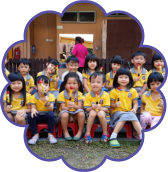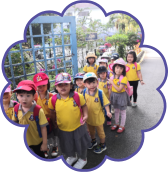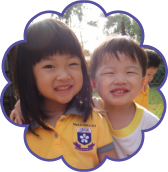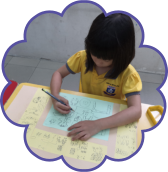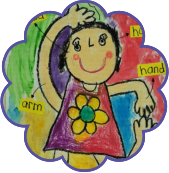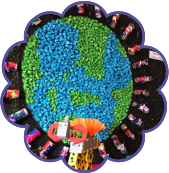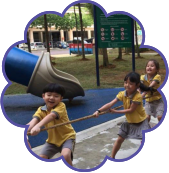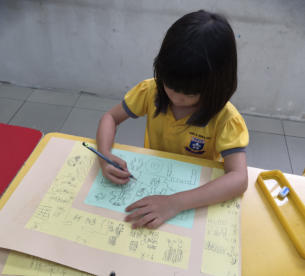Headquarters (hq):
03-4162 4806
012-758 6089
admin@cece.com.my
Copyright All Right Reserved 2024, tadika cece
TASKA & TADIKA CECE
:

Ground Floor, Lot 9094,
Jalan Malinja,Taman
Bunga Raya, Setapak 53000 KL.
:

:

TIC programme is a Thematic Integrated and child- centered curriculum that involves children wholly from the age group of 2 to 6 years old in a wholesome
learning environment. Thematic Integrated and child- centered programme allows children to learn through experiences and emphasises the importance of the
holistic development in every child. Most importantly, all the subjects and thematic based activities are being taught based on the Standard National Preschool
Curriculum (KSPK). Thematic Integrated learning experiences stimulate children’s inherent abilities and increase the understanding of new information rapidly.
Therefore, all our children will always be encouraged to actively participate in all the learning activities that conducted by teachers.
The TIC Programme is mainly focus on:
•
The five developmental domains of early childhood development such as language, cognitive, physical and social emotional.
•
Obtain learning in a social and cultural environment.
•
Hands-on learning (Helps children discover the real life setting)
THEMATIC INTEGRATED AND CHILD-CENTRED PROGRAMME
ENLIGHTENMENT OF TIC PROGRAMME
The foundations of lifelong experiences are built in the early years of every child to succeed in life.
Literacy Acquisition
A print-rich environment supports children’s literacy development.
Children observe and learn literacy through imitations. In addition, they
also learn to read, write the familiar words and label objects that they
see around them. Besides, talking with one another in classroom
enhances communication skills in the early years of children’s lives.
Psychological Disposition
Children’s psychological disposition such as curiosity, imagination,
problem solving, independence, resilience and perseverance known as
natural character traits that children possess from birth. When they
socialize with their friends, those traits are being polished and help
them to grow as a whole person in a positive environment.
Social Skills
Children are able to express their feelings by doing what they are
genuinely interested in. When they being part of the activities they are
interested in, they build social skills among their friends and teachers.
Explore with varying interests allow children to be mastered in an
understanding of the differences, value the relationship, taking turns
while playing, being patience and show empathy to one another.
Moral
Children are being aware of moral values in the early years of their
lives. They learn to be disciplined with self- control, respect their
friends’ feelings. They also acknowledge what is right and what is wrong
by learning from one another and observing the teachers. Besides, they
also understand the needs of their friends by get along with them in
school.
Values
To nurture mannerism and moral behaviours in children, teachers are
being good role models to them during schooling hours. Through this
children demonstrate moral behaviours when they share, help, co-
operate, communicate, sympathize, respect and express love towards
others. Most importantly, they learn to care for the environment by not
littering, save water, practice 3R (Reduce, Reuse and Recycle).
Aesthetics
A set of values relating to nature and appreciation of beauty of
something incorporated into early childhood education where our
children learn to experience through aesthetics activities such as music,
arts and craft, pretend play, dramatic play and the activities that help
children to be an aesthetic. By doing this, children learn to express
themselves in an expressive way.
Outdoor Experiences
Outdoor activities are significant in children’s lives. Fine and gross
motor skills are crucial for children to learn where teachers can observe
their physical developmental milestone in their childhood. Thus,
children are welcomed to experience various types of outdoor activities
such as water play, sand play, gardening, sensory activities, jumping,
walking, skipping and more fun activities.
Learning Activities
•
Physical Activities
•
Early Literacy
•
Early Science
•
Early Mathematics
•
Social Studies
•
Creative Arts
•
Music and Movement







